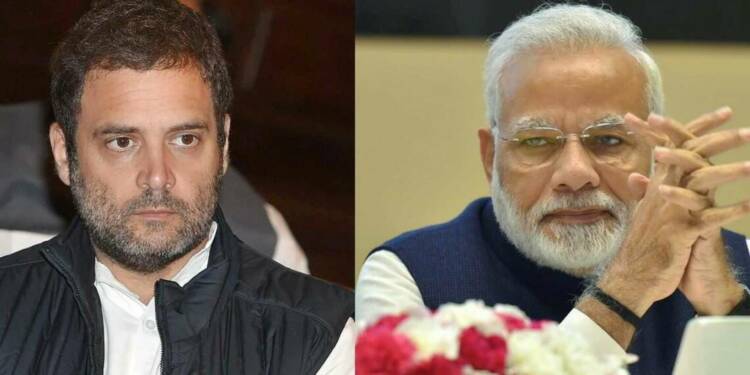Just a few days after the BJP swept the Civic Elections in Gujarat, the party registered a landslide in the state’s rural polls as the Indian National Congress rapidly plunges towards political obscurity in Gujarat.
In a major shot in the arm for Gujarat BJP, ahead of next year’s Assembly elections, the party won all 31 district panchayats on offer and also secured the majority of the 81 municipalities which went into polls. Out of the 231 taluka panchayats, the BJP won 200 blocks in what can be termed as a saffron tsunami.
The recent results effectively reverse the electoral gains made by Congress in 2015 as on the back of the violent Patidar agitation, the party registered big gains in Gujarat. In 2015, the BJP lost 21 out of the 24 district panchayats while losing 138 out of 228 taluka panchayats. The INC’s big gains in Gujarat’s rural belt made the 2017 Vidhan Sabha elections interesting with the semi-urban and urban belt of Gujarat saving the day for the BJP.
In 2015, the BJP fared poorly in the state’s rural belt as it won only 50 municipalities, 6 district panchayats and around 65 taluka panchayats.
With the recent results, the Congress party further plunged towards political obscurity as it even failed to win a single district panchayat as the party’s grassroots support took a significant battering amidst a BJP wave. It is pertinent to note that the INC even failed to win a single seat in the Surat Municipal Elections.
The Patidar community, which until 2015 was the bedrock of the BJP’s electoral success in Gujarat, seems to have warmed up to BJP again after being decimated in Patel-dominated districts in Amreli and Morbi. In the 2017 Assembly Elections, BJP secured big gains in the Patidar dominated districts which is an encouraging development for the party.
Post the successive drubbings, Gujarat Pradesh Congress President Amit Chavda and Leader of Opposition Paresh Dhanani have tendered their respective resignations with the party high command duly accepting the same.
Last week, the BJP swept the Gujarat Municipal election, winning 483 out of 576 seats, which takes its success ratio to around 90 per cent. Ahmedabad, Surat, Vadodara, Rajkot, Jamnagar, and Bhavnagar, the six municipal bodies that went into the polls, voted overwhelmingly for the party.
Despite Rahul’s efforts, Congress has come up with one of the lowest tallies in recent decades with only 55 seats out of 576, which is even less than 10 per cent, around similar to its tally in Lok Sabha Elections of 2014 and 2019. From the election results, it is very much evident that only 10 per cent of the electorates are willing to bank on the Congress party.
Unless Congress wakes up from its slumber and corrects its course, it seems that the 2022 Gujarat elections will prove to be a cakewalk for the BJP.

























